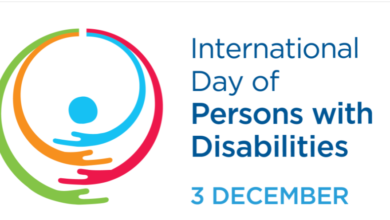Port of Spain, Trinidad and Tobago – Ms. Bernadette Lewis, Secretary General of the Caribbean Telecommunications Union (CTU), made a call for strong collaboration among stakeholders to use information and communication technologies (ICTs) to empower people with disabilities (PWDs). Ms Lewis said that “it requires the involvement of Governments, People with disabilities and the Organisations that serve them, ICT Service Providers, Network Operators, Regulators and the support of corporate citizens, with whom the CTU is prepared to facilitate.” Ms. Lewis was speaking at the demonstration of the features of the Caribbean Video Assistance Service (CVAS), which enables the deaf not only to call each other and communicate directly, but also to speak with agents (trained sign language interpreters) who relay conversations between them and hearing parties. The proposed CVAS is a collaboration between the CTU and VTC Secure that uses a technological platform to facilitate communication, without expensive equipment, via an individual’s smart phone, computer or wireless device from virtually anywhere. VTC Secure is a global company that provides secure On-Demand, Video, Voice & Text Call Center Services. From left: Mr. Selby Wilson, CTU Telecommunications Strategist, Ms. Bernadette Lewis, Secretary General of the CTU, Mr. Bryan Rodrigues and Mr. Kerryn Gunness, deaf and partially blind facilitators of the CTU’s ICT for People with Disabilities (ICT4PWDs) Workshops, Mr. Trevor Prevatt, CTU Consultant, and Ms. Kimone Elvin, Deaf participant. Caribbean Telecommunications Union The Caribbean Telecommunications Union (CTU) is an inter-governmental organisation dedicated to supporting the development of the Caribbean information and communications technologies (ICT) sector. It is a CARICOM Institution. Its Member States are Anguilla, Antigua and Barbuda, The Bahamas, Belize, Barbados, British Virgin Islands, Cayman Islands, Cuba, The Commonwealth of Dominica, Grenada, The Cooperative Republic of Guyana, Jamaica, Montserrat, Saint Kitts and Nevis, Saint Lucia, St Martin, Saint Vincent and the Grenadines, Suriname, Turks and Caicos and Trinidad and Tobago. Using a Personal Universal Communicator (PUC) app, the demonstrations featured following five scenarios: Deaf to Deaf – a Deaf person uses his smartphone equipped with internet access and the PUC app to sign with another deaf person. Deaf to hearing/hearing to Deaf via an interpreter – The Deaf uses his smart phone with internet access and the PUC app to communicate with an agent, who connects them to a hearing third party using a normal landline phone. The hearing person can call the agent and speak to the Deaf. Video assistance service for the blind – a blind person uses his smart phone to contact an agent for assistance in identifying, for example, his medication and finding his way in a building, in particular in an emergency situation. Hearing to Deaf without interpreter – Both hearing and Deaf parties use smart phones with internet access and the PUC app. The hearing party speaks and the voice is converted to text in real time. The Deaf person responds in text. A hard of hearing person responds with voice. Trevor Prevatt, CTU Consultant, provided some of the next steps, which included an estimated breakdown of the costs involved in operating the service and which will eventually be extended to other Caribbean territories, stating that “we need to enlist secure financial support for the Service from a number of stakeholders, in particular corporate citizens.” He emphasised that secure funding is needed to ensure the sustainability of the service. The demonstration gathered a cross-section of representatives, including PWDs and PWD organisations, social development and ICT sectors, as well as members of the diplomatic corps. Two PWDs, one Blind and the other Deaf, testified to the usefulness and importance of the Service in enhancing the quality of their daily lives.
News Letter
Subscribe to our mailing list to get the new updates!
Related

Message by Dr Floyd Morris, CARICOM Special Rapporteur on Disability to mark International Day of Persons with Disabilities
December 2, 2020
Check Also
Close




